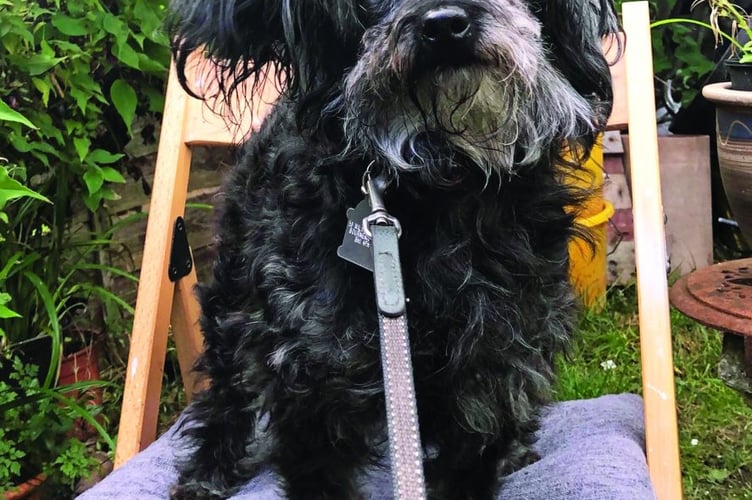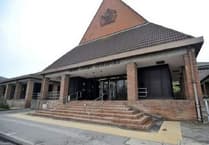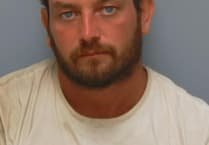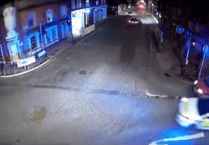A HORSE trader and puppy farmer whose premises were raided in what has been described as one of the UK’s biggest animal rescue missions has been jailed.
Geoffrey Bennett was sent to prison for 19 weeks and disqualified from keeping and dealing with any type of animal for life.
He would be looked after in jail much better than the way he cared for his animals, Bennett was told when he appeared at Guildford Crown Court on Friday last week.
In a legal process that lasted more than two-and-half years, the 67-year-old initially denied any mistreatment of animals at Hurst Farm in Ripley.
But he eventually pleaded guilty to two offences under the Animal Welfare Act and six of failing to properly dispose of the remains of animals that had not been slaughtered for human consumption.
The welfare charges related to the mistreatment of 131 horses, 33 dogs, two alpacas and five birds.
Bennett was arrested at the farm in Portsmouth Road on 9 January 2019, and later charged with causing unnecessary suffering to animals and failing to ensure the welfare of animals.
In sentencing Bennett, Recorder Darren Reed said his guilty pleas, age and health problems had been taken into account, but the severity of the offences warranted an immediate jail term.
Mr Reed also put Bennett on a 12-month supervision on his release from prison.

“They will show you responsibility and care in prison, many times greater than you showed the animals in your care,” he told Bennett.
The raid on Hurst Farm followed an RSPCA-led investigation into concerns for the welfare of horses at the site.
The police executed a warrant, helped by representatives of Guildford Borough Council, Bucks and Surrey Trading Standards, Bransby Horses Rescue and Welfare, Redwings Horse Sanctuary, The Horse Trust, The Donkey Sanctuary, World Horse Welfare, Dogs Trust and several vets.
They found two starving ponies suffering from cyathostominosis – a disease caused by parasites – in one pen and a collapsed goat in another. All three animals were put to sleep at the scene, to prevent them from further suffering. A total of 204 animals were at the site.
Large herds of ponies, many riddled with worms, were living out in fields, with hazardous metal and broken fencing sticking up through thick mud.
Inside two barns were pens full of donkeys, goats, alpacas and ponies, many of them standing on up to three feet of stable waste and faeces. Many of the animals were skinny and had underlying health conditions.
Dozens of dogs, some heavily pregnant and others with puppies, were found chained and tethered on the filthy yard, while others were shut inside cramped cages or in makeshift kennels.
Bones and skeletons were also found at the farm, buried among muck or wrapped in rugs, which led to charges of failing to properly dispose of animal by-products.
Following the raid, 14 horses who were weak, emaciated, had serious worm problems and were suffering from cyathostominosis died or were put to sleep on veterinary advice. Two dogs and a goat had to be put to put down and a chicken and a duck died.
The Hurst Farm rescue mission was co-ordinated by Kirsty Withnall, an RSPCA special operations unit case officer.
The RSPCA and World Horse Welfare officers had received complaints about the farm and had been looking into the concerns and gathering evidence.
“The rescue was the culmination of weeks of planning and evidence gathering,” said Insp Withnall. “In total, there were 100 staff from different agencies working on the case to help round up the animals.
“It took almost 12 hours on the day to assess all of the animals, load them into horse boxes and animal ambulances, and move them off-site; making it one of the biggest co-ordinated rescue missions the UK has ever seen.”
Surrey Police rural and wildlife crime officer PC Hollie Iribar was one of the officers involved in the raid.
“I have witnessed some devastating acts of animal cruelty over the years,” she said. “This was one of the most difficult cases I’ve seen, and I am grateful to the RSPCA and our other partner agencies for the hard work they put in to bring this case to trial.
“I’m very glad that this heartbreaking case has seen a resolution in the courts, and that the animals involved were rescued from unimaginable suffering and given a second chance at a happy and healthy life.”




